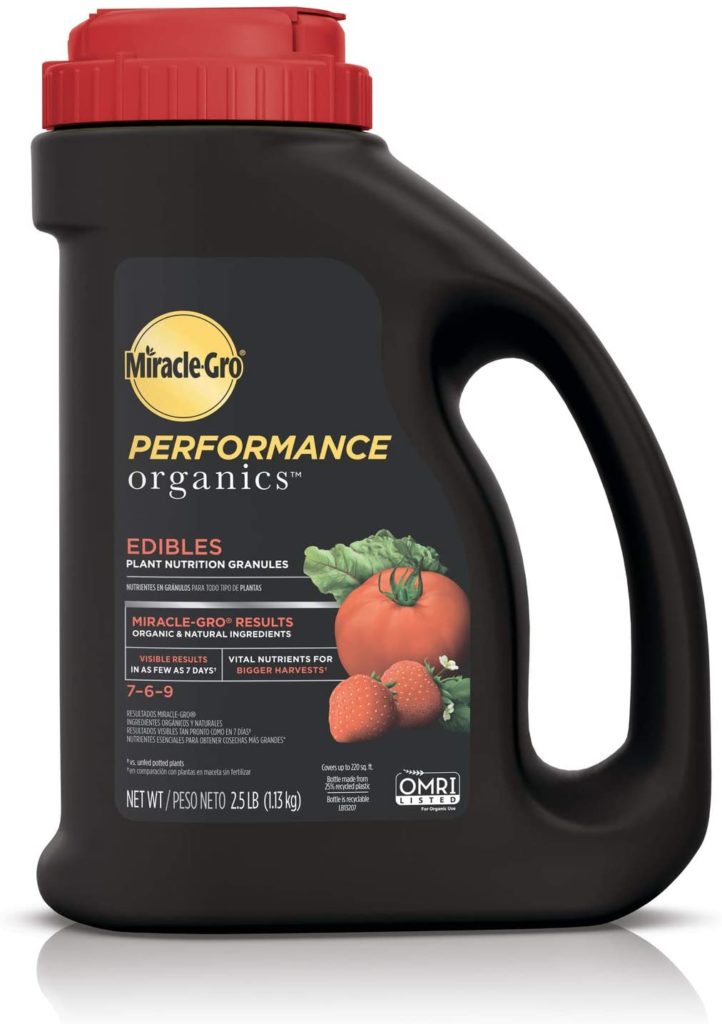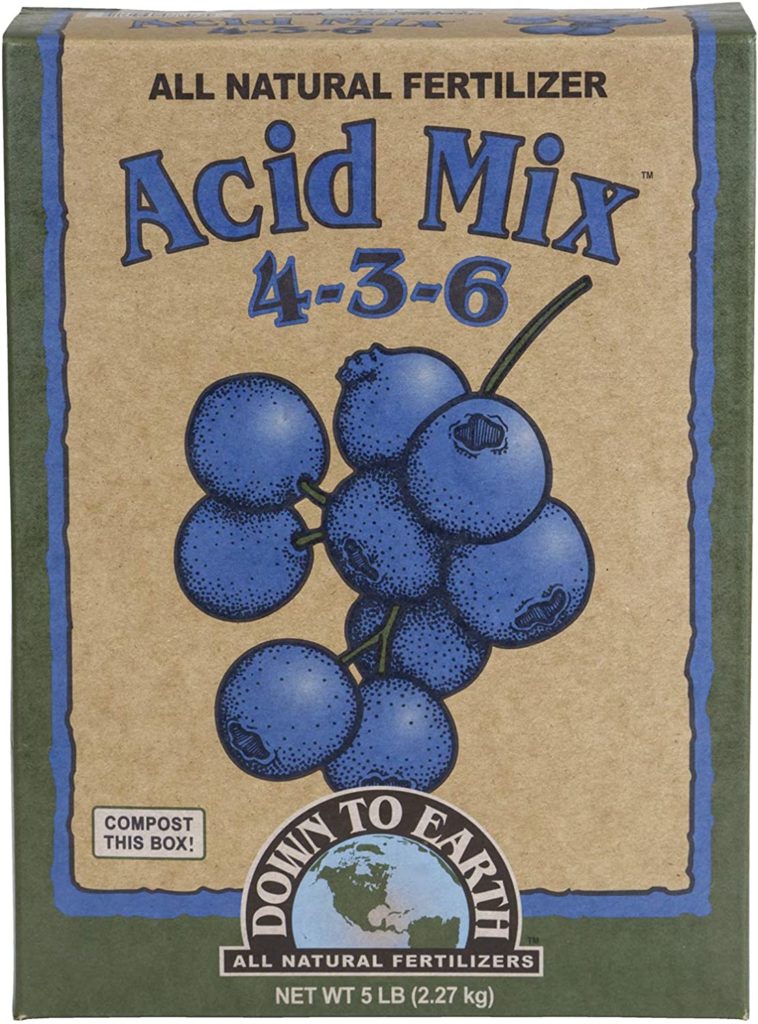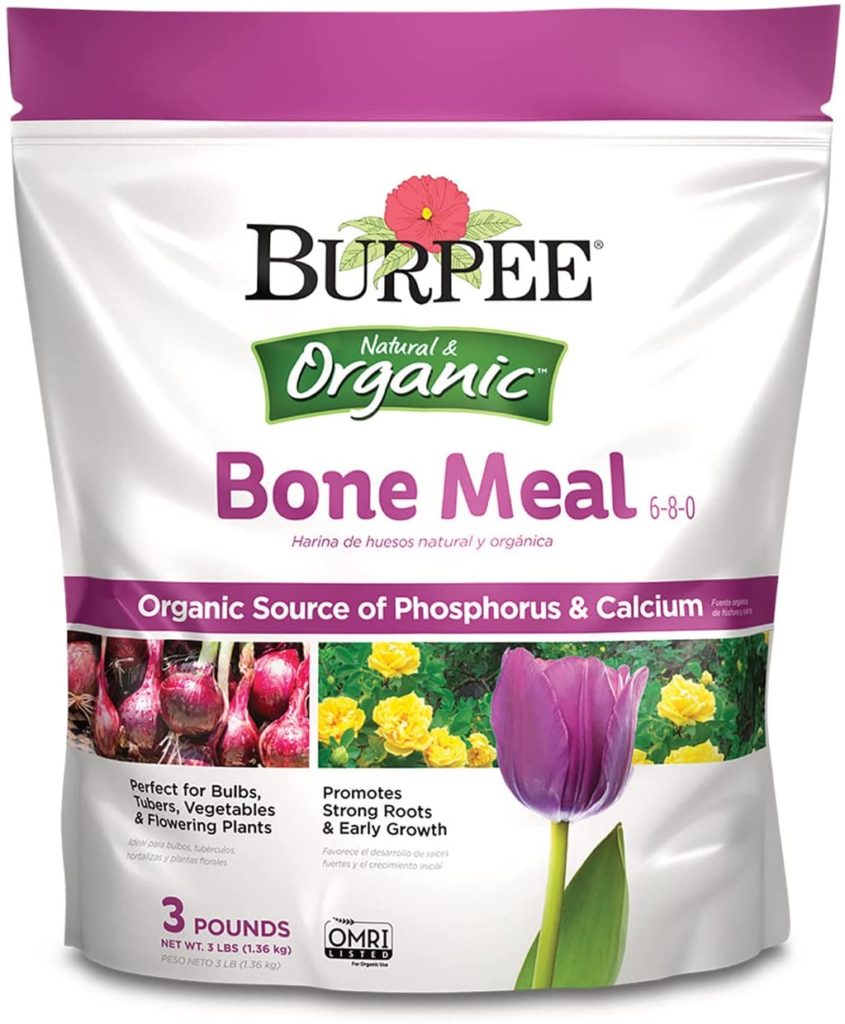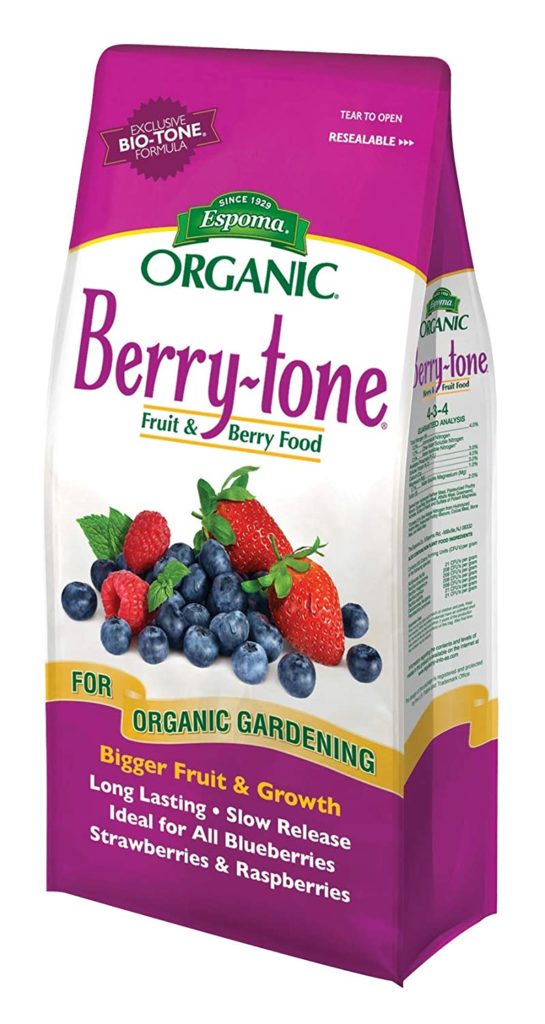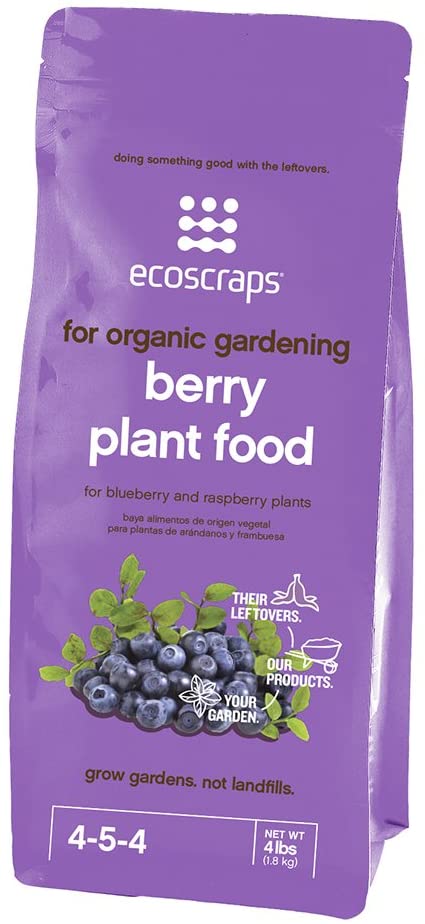The raspberry plant is a relatively simple plant to grow from seed. For raspberries to grow successfully, pleasant summers, warm winters, and a rain-free harvesting season are required. Although it is unlikely, they may flourish even in the harshest conditions with little initiative and the appropriate fertilizer.
Nitrogen and Potassium-rich fertilizers are ideal for raspberries since they provide fast & gradual feeding, acidity, and other macro and micronutrients to the soil while ensuring that the pH remains stable.
10
The Best Fertilizers for Raspberries
The fertilization requirements for raspberries are simple to keep up with regularly. The fertilizer Raspberry plants require a high nitrogen concentration; therefore, a more balanced form is usually advised when applying fertilizer. With the availability of different fertilizers, selecting the most appropriate for your Raspberries may be a little challenging.
Knowing a few specifics about your fertilizer, on the other hand, can assist you in choosing the finest option possible. When it comes to raspberries, some of the most effective fertilizers are as follows:
1. Miracle-Gro Performance Granules Are Organic Plant Nutrients In Granule Form
The basic goals of the Miracle-Go Performance Organics Edibles Plant Nutrition Granular Fertilizer are to promote plant development and boost yields in edible crops. Raspberries can be grown to their fullest potential with the assistance of this product while still preserving their particular flavor. There are a variety of organic and all-natural ingredients in this fertilizer, which has been awarded the OMRI stamp of approval.
These include soybean meal, soda nitrate, bone meal, sunflower hull ash, phosphoric rock, and potassium sulfate. Furthermore, these sources supply 7 percent nitrogen, 6 percent phosphorus, 9 percent potassium, 6 percent calcium, 0.90 percent magnesium, and 1.20 percent sulfur.
But there’s more to it than that. The compounds also provide micronutrients such as copper, zinc, cobalt, iron, manganese, molybdenum, etc. The fertilizer has a robust NPK ratio and a high concentration of calcium, which helps keep both the soil and the plant healthy and happy.
It also contains nitrogen from four different sources, with 5.29 percent of the total N being insoluble in water. To summarize, this tells you to stop worrying about the growth of your Raspberry plant. Raspberries, tomatoes, veggies, and fruits are just a few of the edible garden plants that can benefit from adding this plant food to their gardens.
Thanks to its rapid absorption, you’ll notice an improvement in just seven days after applying this fertilizer. As a result, I am convinced that you will reap a greater harvest this year than you have in any previous year.
Features:
- Organic
- NPK ratio: 7-6-9
- Easy-shake container
Direction for usage:
According to the manufacturer, potted Raspberries require six teaspoons of fertilizer per 12-inch pot. When using fertilizer, it is recommended that you thoroughly mix it with the topsoil before planting your Raspberries to ensure that they receive appropriate nutrition.
Pros and Cons:
- Nitrogen concentration is high
- Mixture derived from natural sources
- Increases the size and flavor of crops It is rich in micronutrients
- Numerous gardeners have endorsed this brand
- A good choice for any variety of berry
- Packaging and quantity less than other brands
- Simple packaging allows contents to flow over the plant, causing overdose and difficulties
2. Down To Earth All Natural Mix Plant Fertilizer
Enhanced with organic components like kelp and fish meal, this 4-3-6 NPK from Down to Earth is suitable for acid-loving berries, vegetables fruits, and ornamental plants. Combining these elements encourages productive growth while enhancing the plant’s resilience to harsh winter conditions.
Cottonseed Meal contains various components, including rock phosphate, langbeinite, and kelp meal. Hopefully, now you understand why it’s referred to as “Raspberry’s Best Natural Fertilizer.”
Aside from that, the NPK ratio of this acid mixture is 4-3-6. This signifies that it has 4 percent nitrogen, 3 percent phosphorus, and 6 percent potassium. In addition to these core nutrients, the fertilizer also contains secondary nutrients (3 percent calcium, 2 percent magnesium, and 2 percent sulfur) and micronutrients (Mn, Cu, Fe, Zn, etc.).
In light of the availability of such natural sources, it appears that raspberries have an excellent nutritional profile. Because it contains 3.6 percent water-insoluble nitrogen, you can use this fertilizer to feed your raspberries for up to three months at a time.
With this in mind: even if potassium has a lower nitrogen concentration than sodium, you need not be anxious about the fact that nitrogen will always be present. Humic acid generated from leonite accounts for 2.5 percent of the plant’s total diet. Crop growth is accelerated in the early years of a crop’s life cycle due to an increase in the amount of microbial activity in the soil and an increase in nutrient uptake and organic content.
Features:
- NPK ratio: 4-3-6 formula
- Fall Applications can aid encourage root growth and enhance tolerance to severe winter temperatures
- Easy to use
Direction for usage:
Raspberries should be fertilized three times a year with a granular fertilizer. Three doses are given in the early spring, throughout the blossoming period, and in the early autumn. The recommended rate of fertilizer application is one cup of fertilizer per plant. After that, make a deep hole in the dirt and soak it in water.
Pros and Cons:
- Kelp and fish meal are used to enhance the product
- Produces an abundance of organic fruits and flowers as a result
- Compared to alternative options, larger doses may be required
3. Burpee Organic Bone Meal Fertilizer
This natural and organic bone meal fertilizer can be used to benefit any food plants that are grown in a garden. It contains a high concentration of Phosphate, which is necessary for the growth of all plants, including raspberries, to occur.
In a 3-pound bottle with a nice label, this fertilizer is available. Phosphorus is required to develop the raspberry plant’s flowers, transport energy from a source to other regions, distribute starch and sugar evenly, and transmit genetic information from the parent plant to the offspring. Phosphate is required for the growth of the raspberry plant.
Additionally, it contributes to the basic metabolic activity of the plant, photosynthesis. Burpee Natural and Organic Bone Meal fertilizer are available in six different nutrient ratios, 8 0. Aside from supporting flowering and fruiting, nitrogen is required to develop healthy leaf growth in plants. The feed should be applied a few weeks before harvesting to achieve the best results.
When you get your hands on this treasure, you’ll have plenty of raspberries for eating fresh and making raspberry jam, among other things.
This fertilizer is 100 percent natural, environmentally, and beneficial-bacteria friendly is a plus. Even if a small amount of fertilizer gets into your berries, you won’t have to worry about it. If you do not thoroughly wash your fruits before eating them, they may become contaminated with bacteria.
Additionally, Burpee fertilizer helps strengthen the raspberry plant’s roots, which in turn promotes the plant to produce delicious fruit. It’s ideal for berries and vegetables of all kinds, as well. It not only helps older plants develop, but it also helps new plants grow and maintain the health of their immune systems.
This feed contains bone meal, a favorite of many animals, particularly dogs, and may need extra caution for individuals who have pets at home. As a result, please ensure that your dogs do not consume or sniff the Burpee fertilizer. Even though the fertilizer is fully safe, some cramping may occur due to its use.
Features:
- OMR is listed for organic use.
- Enhances root crop and vegetable growth.
- Fertilizer ratio: 6-8-0
Direction for Use:
Spread the potting soil evenly around the tree’s trunk, using 12 cups per cubic foot of potting soil or 1 pound per inch of diameter of the tree’s trunk, starting at the tree’s base. After a four-month pause, resubmit your application. That is one of the advantages of fertilizer that releases gradually.
Pros and Cons:
- Nitrogen and Phosphate concentrations are essential for overall growth
- Enhances the flavor and yield of raspberries
- An environmentally friendly recipe
- Doesn’t harm raspberry plants in any way
- Due to the strong fragrance of bone meal, dogs may eat it
- If given to pets inadvertently, this substance might induce an upset stomach
4. Espoma Berry-Tone Fruit & Berry Food 4-3-4
Berry growers will particularly benefit from this particular plant food. “Espoma Berry-Tone” fertilizer, which is available from Espoma, can be used on various berries, ranging from raspberry and blueberry crops to strawberries and blackberries.
The organic fertilizer is made up of various ingredients, including feather meal, bone meal, chicken manure, Alfalfa meal, greensand, Sulfate of Potash, Sulfate of Potash Magnesia, and Elemental Sulfur.
Fertilizer also contains 5 percent calcium, 1 percent magnesium, and 5 percent sulfur and various micronutrients such as copper, zinc, barium, boron, iron, manganese molybdenum, and chlorine. The nitrogen-phosphorus-calcium ratio is 4-3-4. The fertilizer contains ammoniacal nitrogen (0.3 percent), water-soluble nitrogen (1.2 percent), and water-insoluble nitrogen (0.3 percent) (2.5 percent). This results in long-term optimization of nitrogen uptake. Other nutrients such as P, K, Ca, and S & Mg must be present in the proper amounts for the raspberry plant to thrive and produce larger raspberry fruits.
As a first and foremost consideration, this fertilizer has been specifically formulated to satisfy the requirements of Berries. BIO-TONE, a proprietary formulation of beneficial soil microorganisms, is provided. The use of BIO-TONE can help improve the overall quality of the soil and its structure, organic content, and fertility. Additionally, it contains 1 percent humic acid, which improves the soil’s nutrient uptake capacity, organic content, drought tolerance, disease resistance, and other characteristics, among other things. This is the best organic fertilizer for raspberries because it possesses all of the characteristics that a good raspberry fertilizer should possess.
Features:
- NPK ratio is 4-3-4
- Granular
- organic
Direction for Usage:
The drip line should be drawn and measured as the initial step. One cup of liquid is applied for every inch of drip line diameter. Sprinkle the granules into the soil, follow the drip line as a guide, and thoroughly water them.
Pros and Cons:
- Designed to produce more fruit and richer bush
- Contains six strains of good bacteria
- Presence of an earthy odor
5. Eco Scraps for Organic Gardening Plant Fertilizer
Food scraps are collected and processed into healthy and easy-to-apply fertilizer granules due to collaboration with various safe sanitation facilities and other organizations. Ultimately, the end product is a dry form of the same nutrients that plants receive from well-aged compost. At the same time, rubbish is being diverted away from landfills.
Using a composting system in the garden, you could recycle virtually all of your kitchen and garden trash. Following suit, the company did the same. Berry food is prepared from various components, including Landfill Wastes, hydrolyzed Feather Meal, Bone Meal, Blood Meal, compost, and other natural ingredients.
The NPK ratio, which is 4-5-4, was the only information provided by the manufacturer. This indicates that the fertilizer includes 4% nitrogen, 5% phosphorus, and 4% potassium by concentration. The first thing to notice is that there is far more P than N or K in the mixture. To begin with, there isn’t much of a distinction between the two. Remember that the entire 4 percent of nitrogen is water-insoluble, which means it will feed your raspberries for the same period that Phosphorus will feed them. This means, you should have no cause for fear.
This single particle of fertilizer will provide nutrition to all of the berries in your garden, including raspberries, blueberries, strawberries, and other varieties. This fertilizer does not include any excrement, and the company claims that it does not smell like a poopy bed, making it suitable for use indoors. In addition, the nutrient makeup of each granule of this fertilizer is consistent. Thus, ensuring an even and clean influence on your Raspberries throughout the growing season.
Features:
- NPK ratio: 4-5-4.
- Made for berry plants like blueberries, raspberries, and strawberries.
- Each particle has a verified analysis for uniform feeding
Direction for Use:
One cup of granules should be sprayed onto the dirt in the pot. After that, lightly till the soil and thoroughly water it to remove any remaining dust. You can feed your Raspberries with a single application for more than a month.
Pros and Cons:
- An all-natural and organic formula
- Protects the environment and soil microbes
- Makes an excellent fertilizer for your outdoor raspberry plants Quick and easy installation
- Safe for pets and children; no manure
- Nitrogen concentration is low
- All types of soil may not be suitable for this method
- New gardeners may find it more difficult to utilize because of the odd nutrient ratio
- It must be kept in a cold, dry location to prevent mold formation
Frequently Asked Questions(FAQs)
The ideal time of year to fertilize raspberries may depend on the fertilizer and how it is applied. Slow-release fertilizers are applied once or twice during the growing season to establish shrubs and new plantings. Plants need extra nutrients twice a year in the spring when they wake up from their long winter and in the fall when their resistance to cold winters needs a boost.
Depending on the brand, liquid alternatives may need to be applied every 1–2 weeks to maintain proper nutrition. Summer is the time to stop fertilizing your lawn and garden. It helps reduce early frosts by limiting new leaf and fruit growth.
Raspberries are available in two different flavors: tart and sweet.
• Summer-bearing Raspberries
• Fall-bearing Raspberries
In response to your inquiry, Summer-bearing Raspberries bear fruit from late June to August, depending on the growth they received the previous year. In addition, the frequency with which you need to fertilize your Raspberry plants varies depending on the kind you have.
On the other hand, fall-bearing raspberries produce two crops: one in late summer on old wood and another in early fall on new growth, harvested in the same season.
Organic or inorganic fertilizers will affect the growth of your berry bushes. Next, choose between liquid and slow-release medications. If you choose a natural solution, apply 25 pounds of organic granules per 100 feet of raspberry row.
These materials can be used as organic manure or as a top layer. Only 4-6 pounds of inorganic granules per square foot are required. Apply liquid feeds seven to fourteen days a week, organic or synthetic, to ensure your plants get enough nutrients.
Conclusion
As you count in your plant’s health on top priority, there are several additional factors to look for when selecting fertilizer. Fertilizers are essential for the growth and development of a plant’s root system. Choose a fertilizer depending on your requirements and the requirements of your plants.
The use of any of these fertilizers will result in more attractive plants and increased crop yields. Before picking a fertilizer for your raspberry patch, it is necessary to conduct soil testing to ensure that you will get the finest possible yield.
This test will allow you to specify exactly which fertilizer will be most beneficial to your soil.
Also Read…
- How to Fertilize Lawn? Secret Tips You Should Follow When Fertilizing Lawn
- When to Fertilize Lawn? Important Things You Should Know Before Fertilizing Your Lawn
- 5 Best Fertilizer for Grass in Summer – {Review 2023}
- A Guide to the Best Fertilizer for Cucumbers to Buy in 2022
- Can You Apply Ironite and Fertilizer at the Same Time?
- Top 7 Best Fertilizer for Palm Tree (Review 2022)
- 6 Best Fertilizer Spreader to Buy in 2022 (Top Picks for Your Lawn)
- 6 Best Blackberry Fertilizer to Buy in 2022 (Our Top Picks)
- 7 Best Fertilizer for Plumeria in 2022
- The Pros and Cons of Organic Fertilizer Every Gardener Should Know

